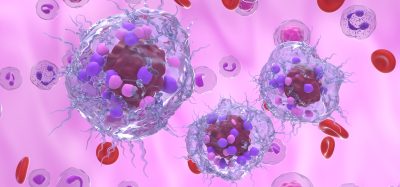Phage therapy: A step forward in the fight against antibiotic resistance
Posted: 8 January 2025 | Drug Target Review | No comments yet
A new study shows how phages, viruses that kill bacteria, can coexist on a single bacterial strain. This offers valuable insights for developing more effective therapies against antibiotic-resistant infections.


Knowing how more than one kind of phage can survive over time on a single bacterium could help in designing next-generation phage cocktails.
“Knowing how more than one kind of phage can survive over time on a single bacterium could help in designing next-generation phage cocktails,” said Dr Nora Pyenson, the study’s lead author and postdoctoral scholar at NYU Langone Health. She suggests that different phage species could target various stages of the bacterium’s lifecycle, preventing the development of resistance and ensuring that the entire bacterial population is wiped out.
Phage therapy faces challenges, but shows promise
This discovery contrasts with antibiotic treatments, where bacteria resistant to drugs can survive and multiply, leading to problematic infections that are harder to treat. Phage therapy, however, is still in its infancy. No phage therapies have yet become standard treatments due to challenges such as incomplete bacterial eradication or bacterial resistance to phages, much like the issues seen with antibiotics.
Dr Pyenson elaborates on these challenges: “No phage therapies have yet become standard treatments for bacterial infections, either because in past attempts a single phage did not kill all the targeted bacteria or because the bacteria evolved to be resistant, similar to the evolution of antibiotic resistance.”
Clinical trials and broader impact of phage research
Phage therapy has gained momentum in recent years as an alternative to traditional antibiotics, with several laboratories testing phage-based solutions. Dr Paul Turner from Yale University is currently leading clinical trials using phages to treat Pseudomonas aeruginosa, a bacterial species that can cause severe inflammation in the lungs of cystic fibrosis patients. Meanwhile, Dr Jonas Schluter’s lab at NYU Langone Health is exploring the role of phages in the human and mouse gut ecosystems, hoping to develop therapies for infections like Salmonella. A major goal is to create phage therapies that are effective across a broad patient population, eliminating the need for highly tailored treatments.
This research also has profound implications for the understanding of phage ecology. Traditionally, viruses were not thought of as social organisms. However, this study challenges that view by demonstrating that viruses, like bacteria, can form complex, competitive yet cooperative relationships within a single ecosystem. “Our study contributes to the burgeoning field of studying the social lives of viruses. We often think of viruses purely in terms of their impact on the host, but they also exist in the context of other viral species. These phage communities show how diversity emerges even among the simplest bits of biology,” says Dr Pyenson.
The potential for phage therapy to shape future treatments
The implications of these findings go beyond just therapy. The diversity of both bacteria and phages in the human gut is thought to play a key role in maintaining health by preventing the dominance of harmful, disease-causing bacteria. As such, understanding the complex dynamics of phage communities may offer new avenues for managing infections and promoting health through microbiome modulation.
Dr Schluter concludes: “Thanks to Nora’s work, we can now begin to understand the evolution of phages when they are in community with diverse viral species and how this shapes their role in health and disease.” This research paves the way for future studies on phage-based therapies, highlighting the potential of phage cocktails in overcoming the growing issue of antibiotic resistance.
This study was published in Science.
Related topics
Antibiotics, Antimicrobials, Bacteriophages, Drug Discovery, Translational Science
Related conditions
Cystic fibrosis (CF), Salmonella, Sepsis
Related organisations
NYU Grossman School of Medicine, NYU Langone Health, Oxford University, Yale University
Related people
Dr Jonas Schluter, Dr Nora Pyenson, Dr Paul Turner








